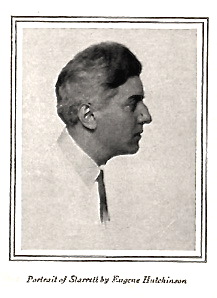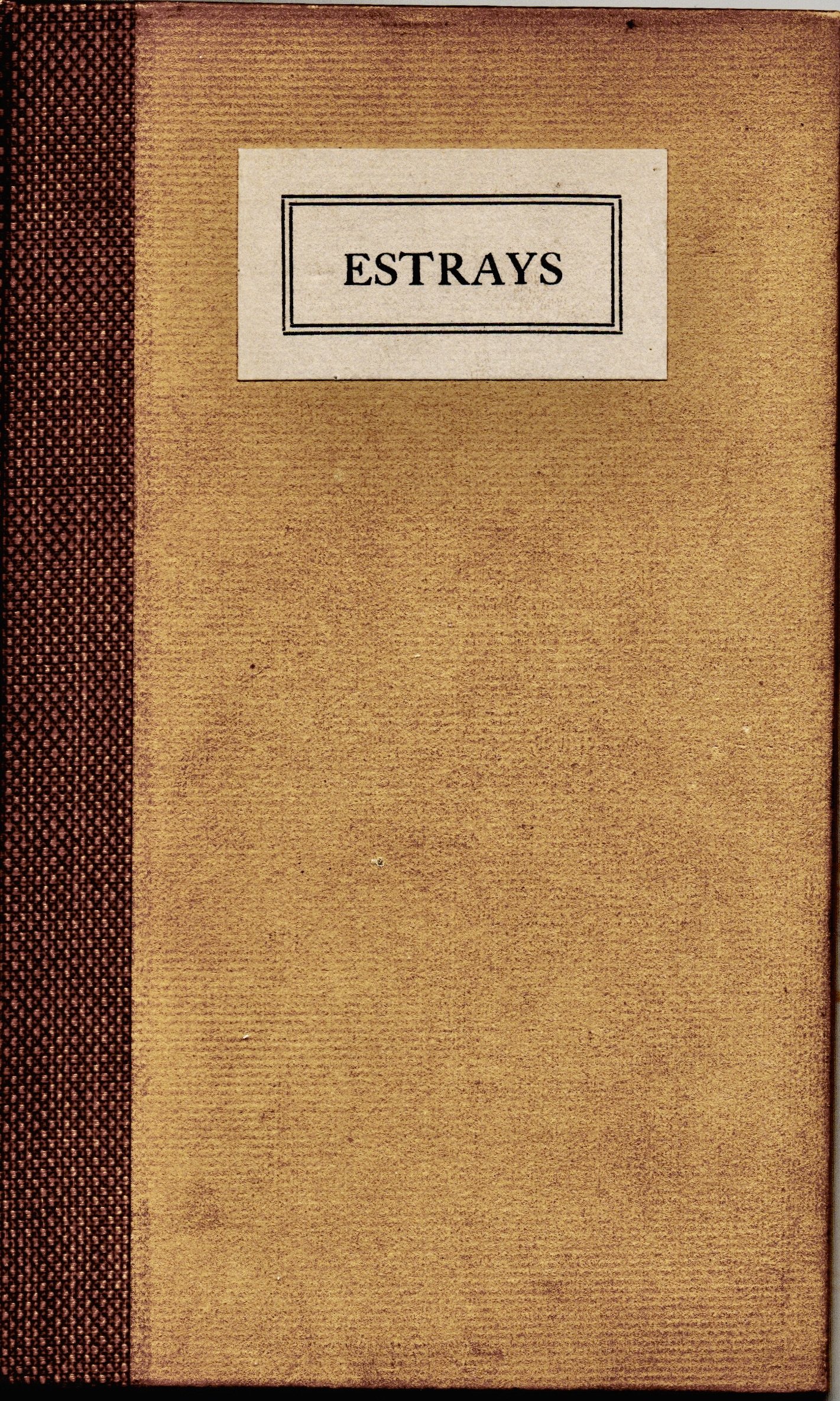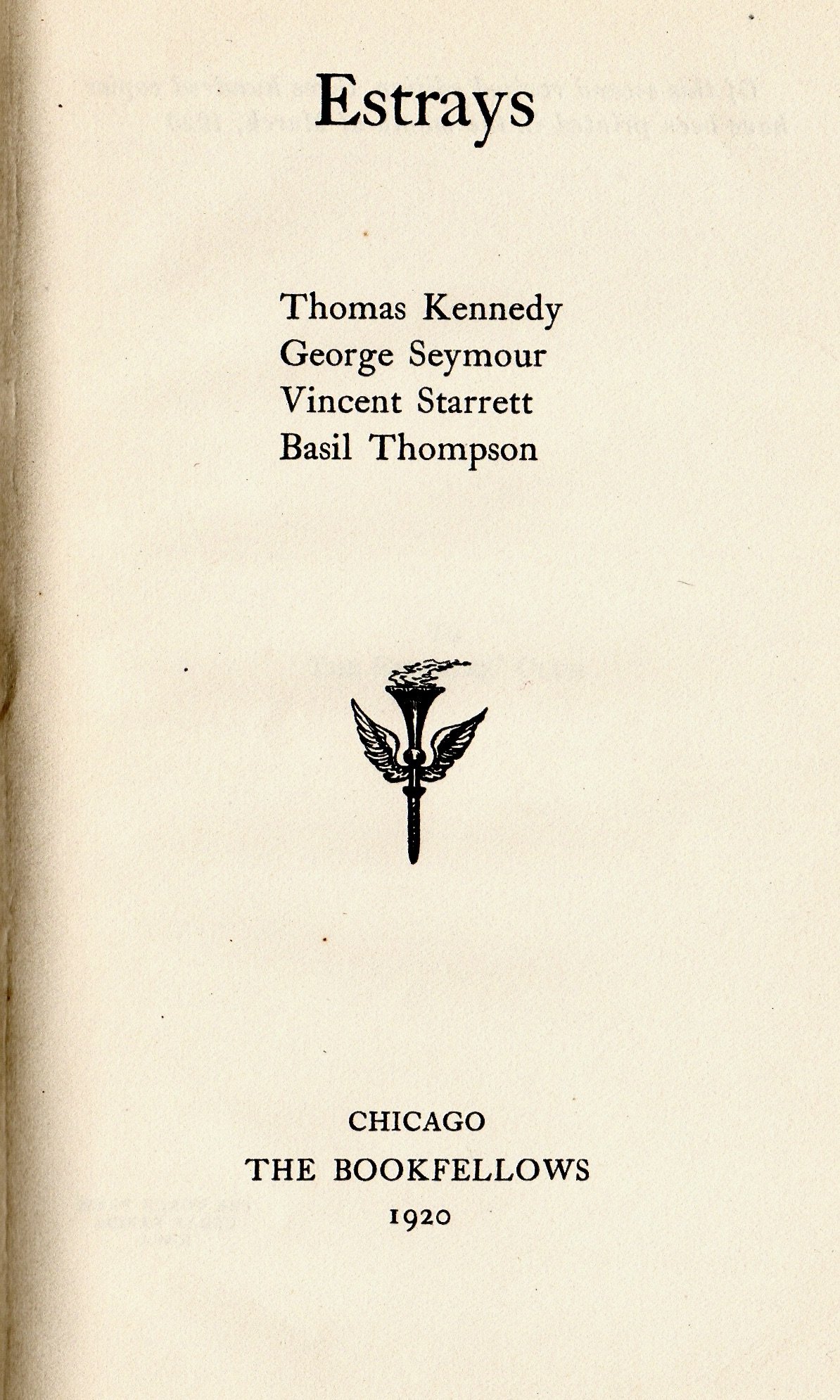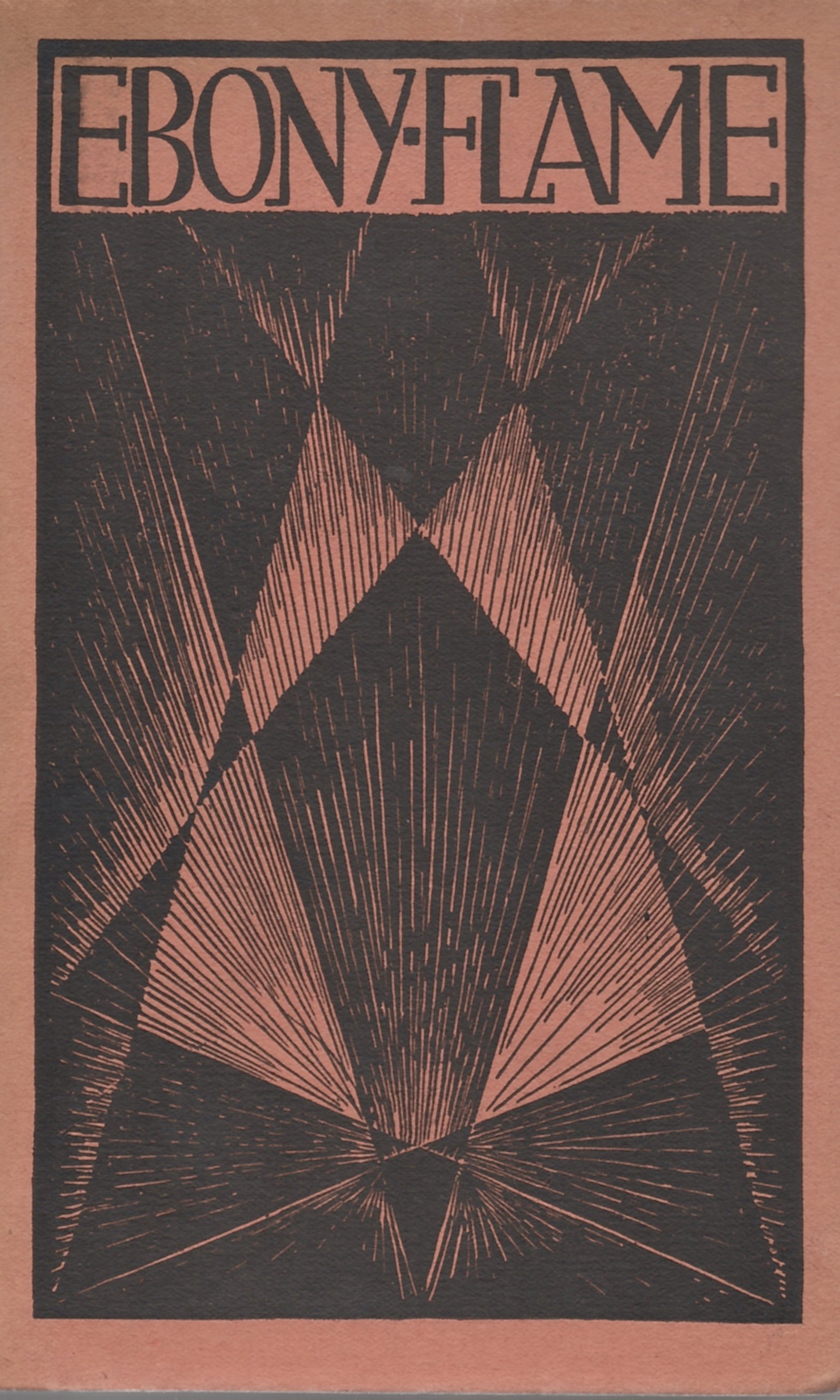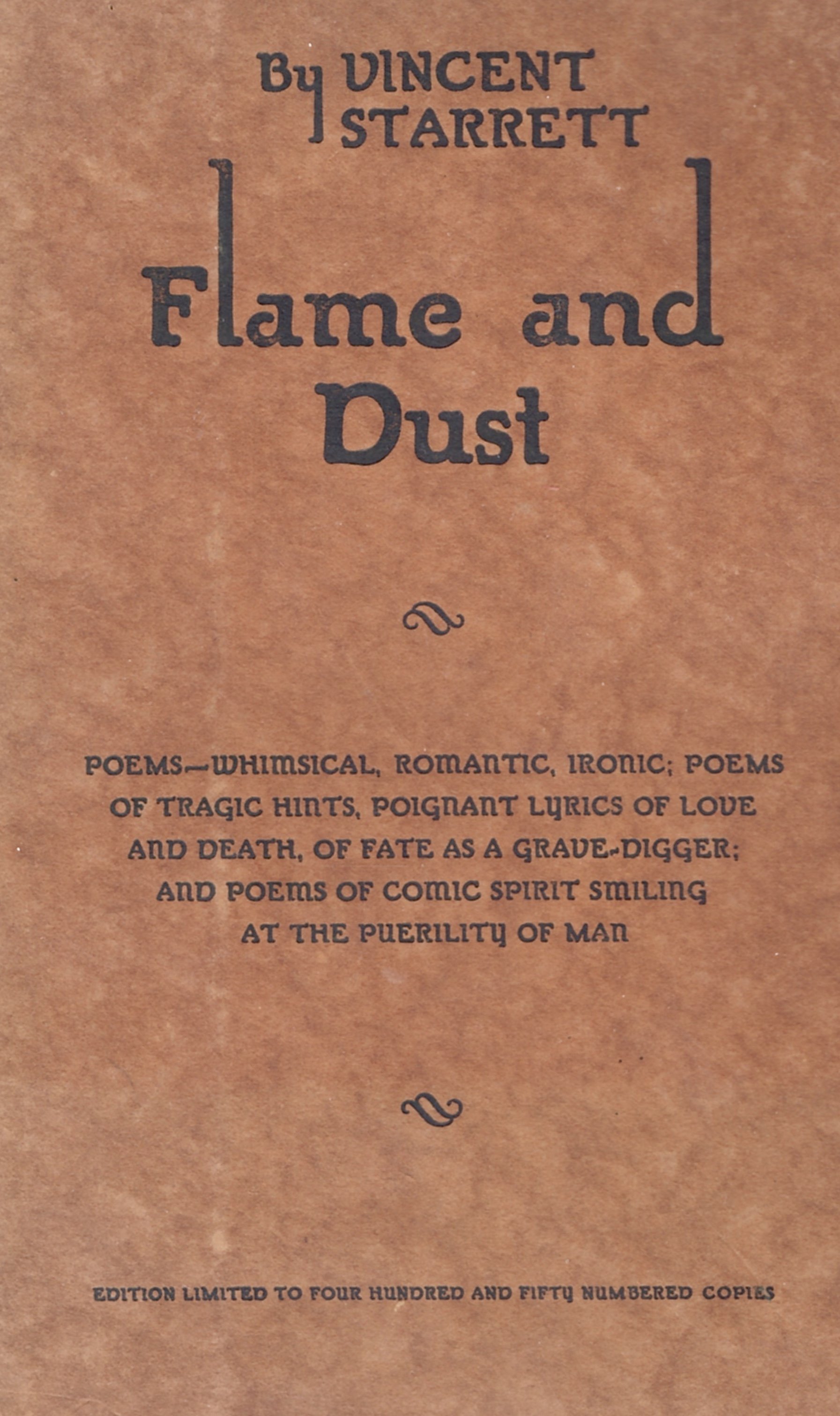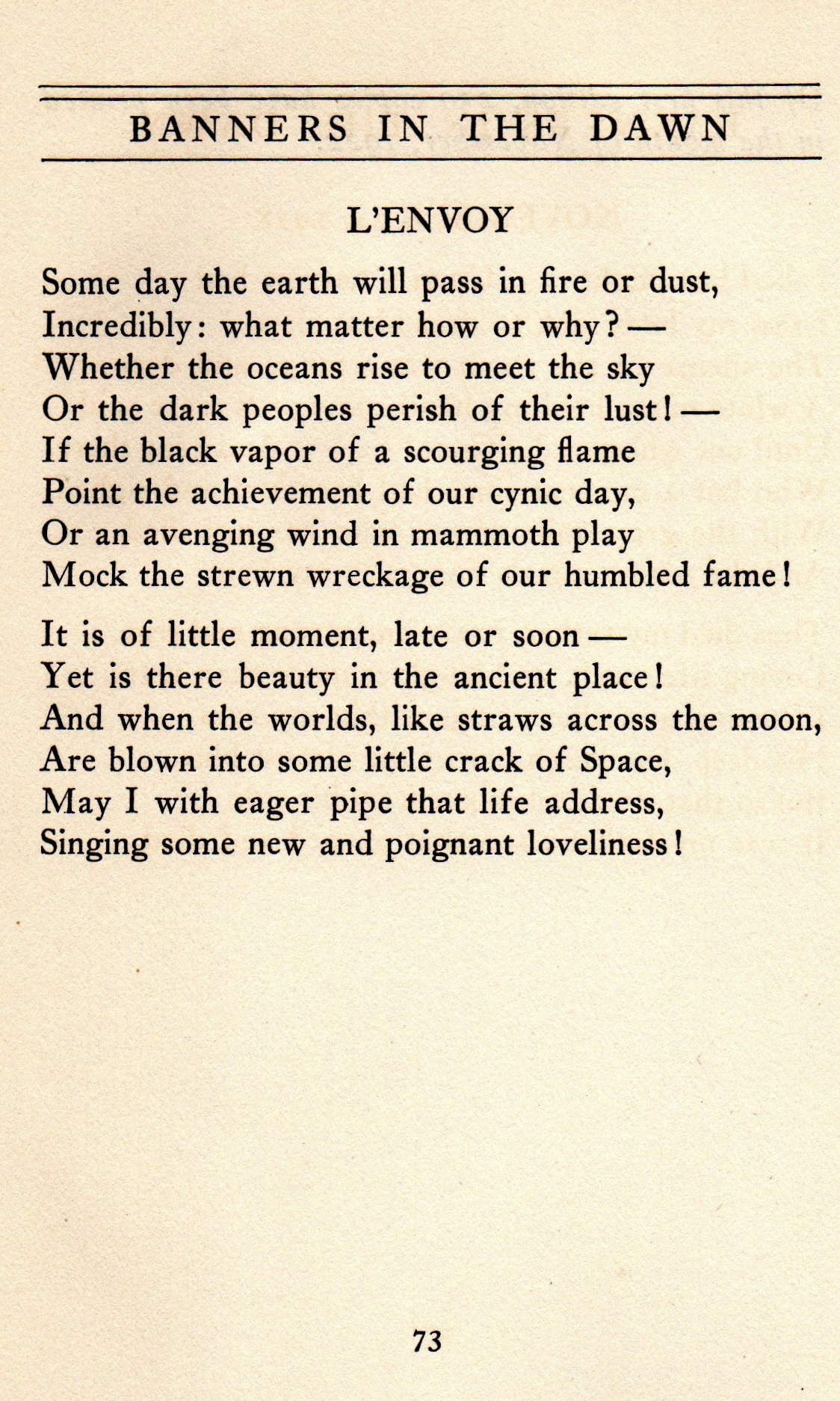'Some new and poignant loveliness'
The inscription from a copy of Estrays, an anthology of poetry, published in 1920 by the Bookfellows.
Wandering New York City
Going to New York City each year for the annual Sherlock Holmes birthday festivities is a blend of new and renewed friendships, accompanied by a series of delightful events and a forced march through breakfasts, lunches, dinners and after-hours socializing. And, as you would expect with the annual meeting of the oldest literary society dedicated to the world’s first private consulting detective, it is an opportunity to pick up many books.
I have made mention of the 2024 book haul over on the Studies in Starrett Facebook page, so won’t go into detail here. I will say that if you’re interested in seeing what’s new, I would recommend going to the Baker Street Irregulars Press page and the Wessex Press/Gasogene Books page. Both are worth your time and treasure.
This year was a bit unusual for me, in that I skipped several large events in favor of smaller gatherings with old friends. That decision meant missing out on guzzling dark beer at McSorley’s Old Ale House, and all the fun activities and enticing books at Otto Penzler’s magical Mysterious Bookshop.
On the other hand, I did something that I haven’t done in years: I wandered the city’s Midtown on my own, going where curiosity and whim led me. I started out by making a pilgrimage to Grand Central Terminal and stared once again in open-mouthed wonder at its sheer beauty. No one would build such a monument today.
I also stood in Times Square for a bit and allowed the undiluted barrage of visual stimulation overwhelm me. It’s like your eyes are drinking from a technicolor fire hose.
Needing a serious change in scene, I ducked into the New York Public Library’s “Treasures” exhibition, to make friends again with Pooh and Charles Dickens. In the next room I was able to enjoy Max Beerbohm’s sketch of Arthur Conan Doyle with the most walrussy of mustaches.
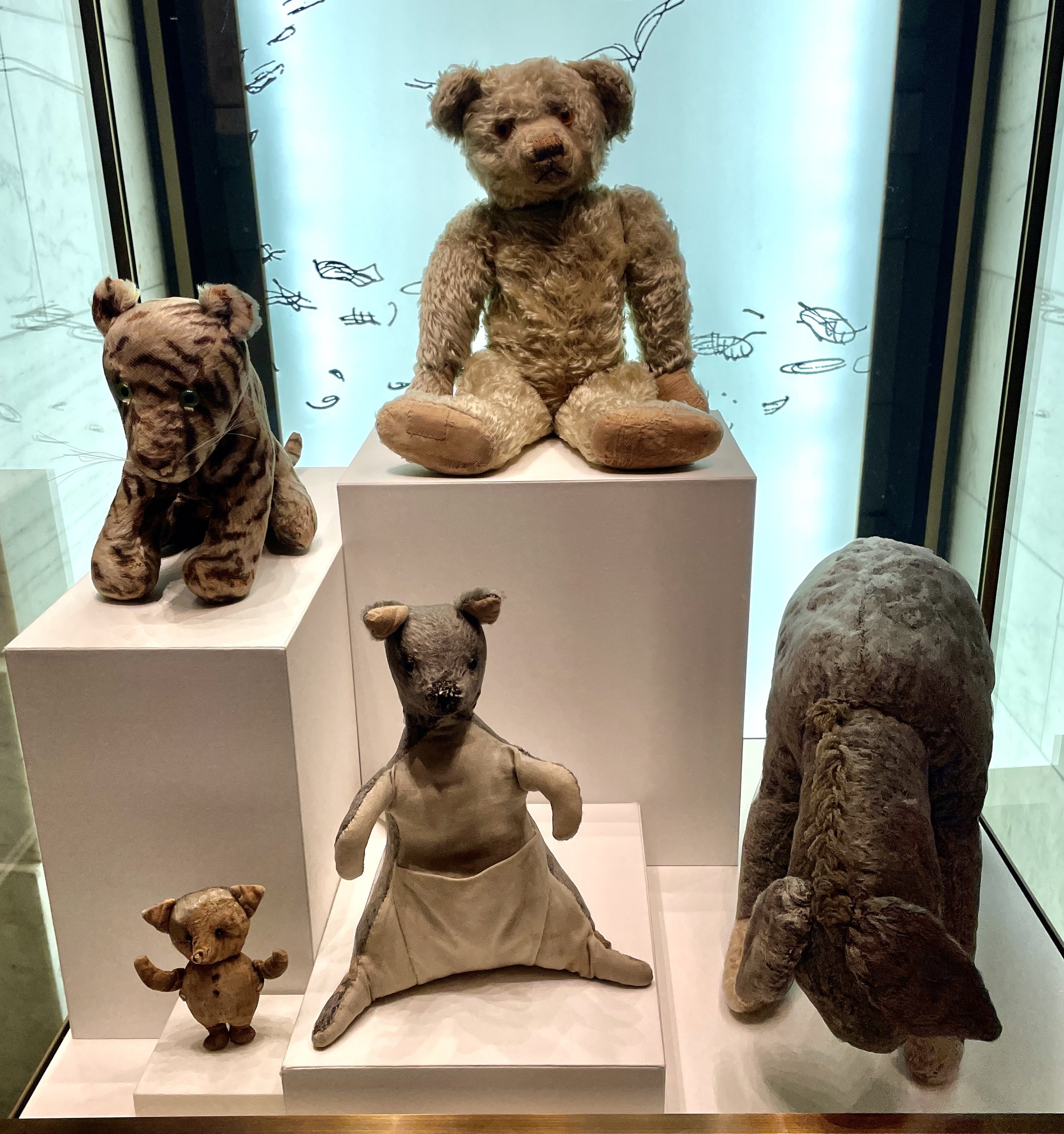

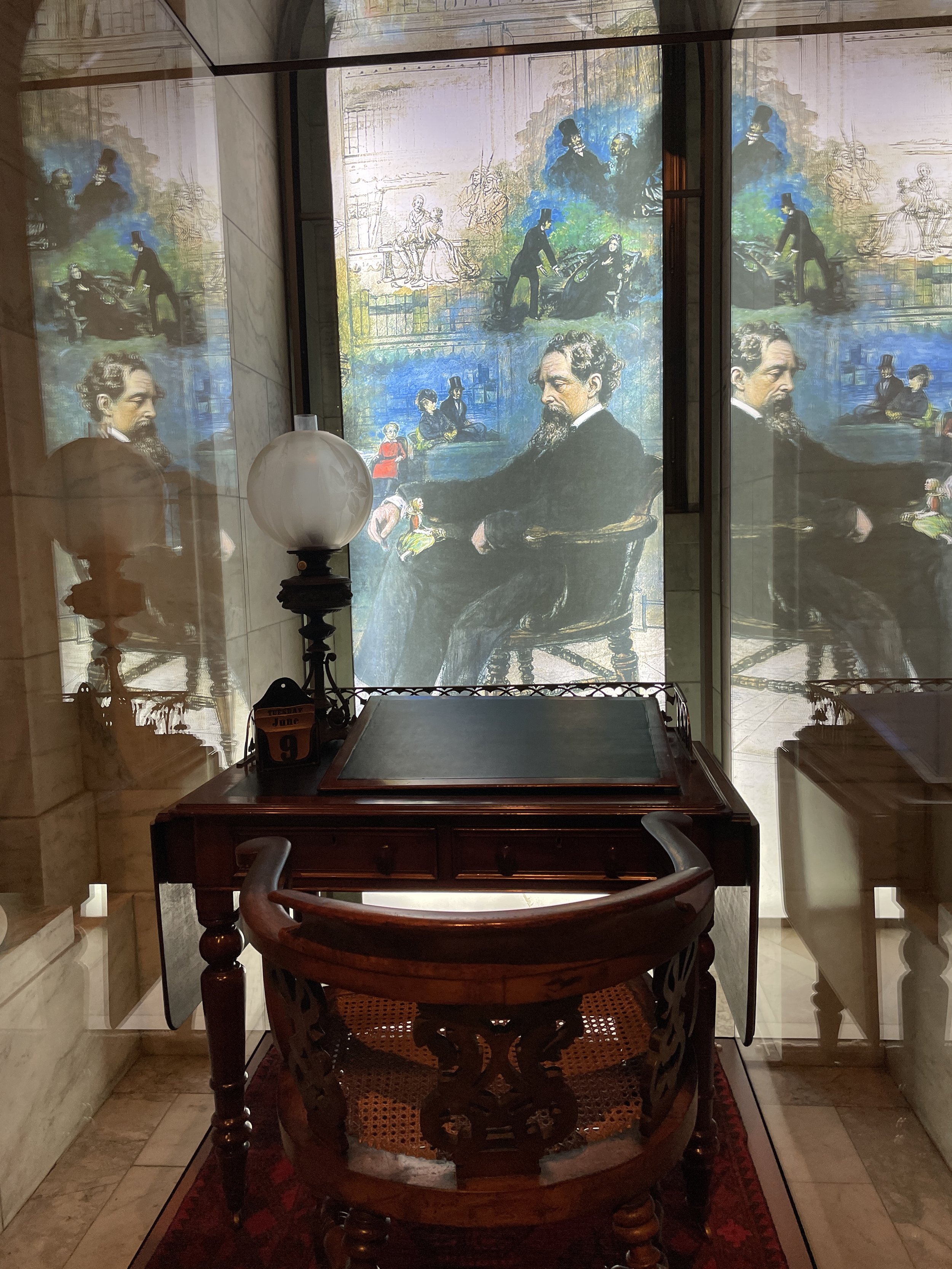

I still had some time so I wandered a bit uptown and dropped into a coffee shop to get my bearings, when I realized I was near an old friend. And that is how, after not having been there for several years, I found myself on East 59th Street at Argosy Books where I picked up a delightful new addition to the shelves.
Estrays: A Book of ‘Wandering’ Verses
To be frank, my showing up at the Argosy was not simply Kismet. There had been a Stararett book on the shop’s website that I had been looking at for a while, but never had the time to check out. Now was my opportunity. I asked the very helpful employee if the book was still available and she immediately went upstairs to bring it to me. I took one look, thought the price was reasonable, and here it is.
Some of you will remember Estrays, from a previous foray into Starrett’s verse, The Poet’s Corner. Estrays shows off the work of four up-and-coming Chicago poets and was published in 1920 by The Bookfellows. In addition to Starrett, Thomas Kennedy, George Seymour and Basil Thompson had their early work represented. This was the book’s second edition. The first was done in December 1918 by Camelot Press.
(I had to look this up. An “estray” is usually a stray animal that is lost, but it’s older meaning could also apply to a human being who is wandering without anchor or direction in life. This was also not its first use in a poetry anthology title. Longfellow edited a 1846 book of verses called The Estray: A Collection of Poems. I had to look that up too.)
What Makes it Special
As an example of the second edition, this is a handsome copy, with some wear starting to show at the back of the book. What distinguishes this copy are the two pages that show Starrett’s handiwork.
The inscription on the front free endpaper.
First the inscription:
For Wilbur Underwood
with the friendship of an
”Estray” in life and letters.
Vincent Starrett
17 April, 1921
”To travel hopefully is a better thing than to arrive.” — R.L.S.
An obituary for Wilbur Underwood from the Washington Evening Star for September 21, 1935.
Wilbur Underwood (1874–1935) was a Washington DC civil servant and a poet. According to a Wikipedia entry, Underwood was also a close friend of another writer, Hart Crane.
Starrett dates the event, but doesn’t say where they were at the time.
It’s possible Starrett was in Wasington DC, a city he got to know a few years before as a reporter for Chicago Daily News during the Great War. I believe it is more likely that Underwood was visiting Chicago. At any rate, Starrett must have been pleased to inscribe this book for a fellow poet.
Fiinally, it is likely that the two men had a mutual admiration for Robert Louis Stevenson. One of Starrett’s earliest works was an anthology of tributes called In Praise of Stevenson, published in 1919, also by the Bookfellows. Starrett edited and wrote the introduction to the Stevenson volume.
The phrase Starrett uses for the Underwood inscription is from Stevenson’s Virginibus Puerisque, his first collection of essays, published in 1881:
Little do ye know your own blessedness; for to travel hopefully is a better thing that to arrive, and the true success is to labour.
I had to look that up too.
What makes it Unique
All of that is lovely, but not so unusual. Starrett signed many books, and inscribed quite a few too. But flip to the back and there is something truly special.
So far as I know, this is the only copy of Estrays that has an additional verse written in Starrett’s hand on the rear free endpaper.
The Argosy’s online book description did not give details on the poem, but I was excited when I first handled the book since I realized it was not a poem from this volume. The possibility arose: Could this be a poem Starrett never had published elsewhere? That would be a nice find indeed.
First, here is a transcription of the poem:
L’Envoy
Some day the earth will pass in fire or dust,
Incredibly: what matter how or why? —
Whether the oceans rise to meet the sky,
Or the dark peoples perish of their lust;
If the black vapor of a scourging flame
Pain the achievement of our cynic day,
Or an avenging wind in mammoth play,
Mock the strewn wreckage of our humbled fame!It is of little moment, late or soon …
Yet is there beauty in the ancient place.
And when the worlds, like straws across the moon,
Are blown into some little crack of Space,
May I with eager pipe that life address,
Singing some new and poignant loveliness!
The Hunt Begins . . .
Now that we know what it says, we need to determine if it has been published elsewhere. Where to begin?
How do you find an obscure poem by a poet most folks have forgotten about?
I tried the Google, and came up blank.
The next step was to turn to my shelves.
Starrett’s use of fire and dust called to mind the titles of two volumes of his poetry: Ebony Flame from 1922 and Flame and Dust from 1924. If Starrett had already written the poem by 1921, it seems likely that it would have been included in these two volumes.
I plucked them from the shelf and flipped through both — and came up empty.
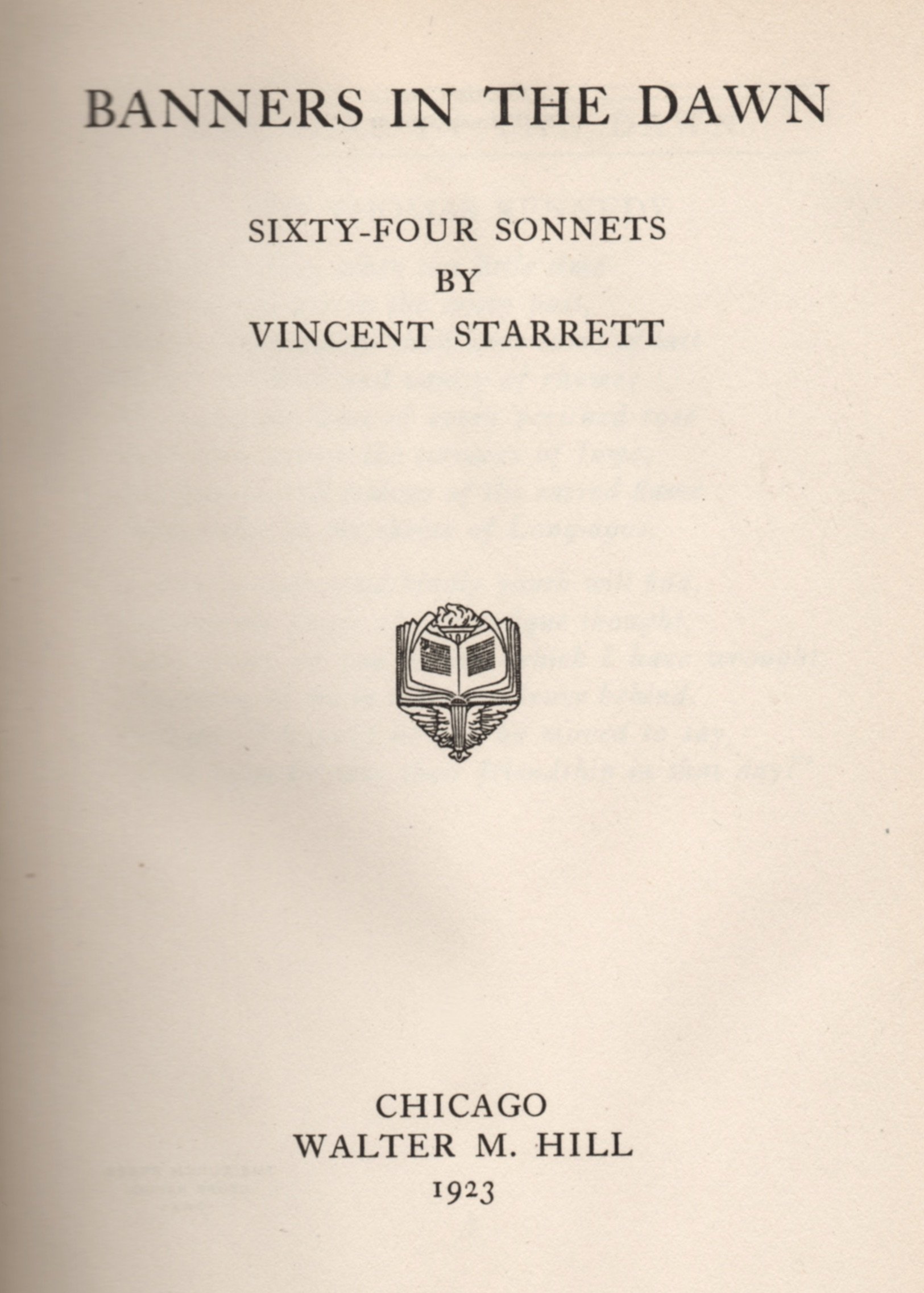
. . . And Quickly Ends
I keep my books of Starrett poetry in chronological order. Tucked in between Ebony Flame and Flame and Dust was a humble-looking volume of poetry, this one from 1923.
Banners in the Dawn was published by famed Chicago bookseller Walter M. Hill and sure enough, near the back of the book on page 73, was the printed poem.
Except for some changes in punctuation, (And oh my gosh, there is so much punctuation for a sonnet: four exclamations marks, three long dashes, and one question mark, sometimes used together at the end of a line.) “L’Envoy” reads in 1923 much as it had in 1921.
So this was not a bit of “lost” Starrett poetry. But it is a poem written in his own hand, which is fun in itself. I still chalk it up as a win.
L’Envoy
L’Envoy is an old term which can mean a final or summary thought.
I also had to look that up.
Making my way from the Argosy back to the Baker Street Irregular festivities, I was excited by my find and showed this book to a few friends. Folks were kind and most of them at least feigned excitement, with the exception of one wag who rolled their eyes and said, “This will no doubt be a three-parter on the blog.”
Nope, just one part. But a fun one, I hope.
